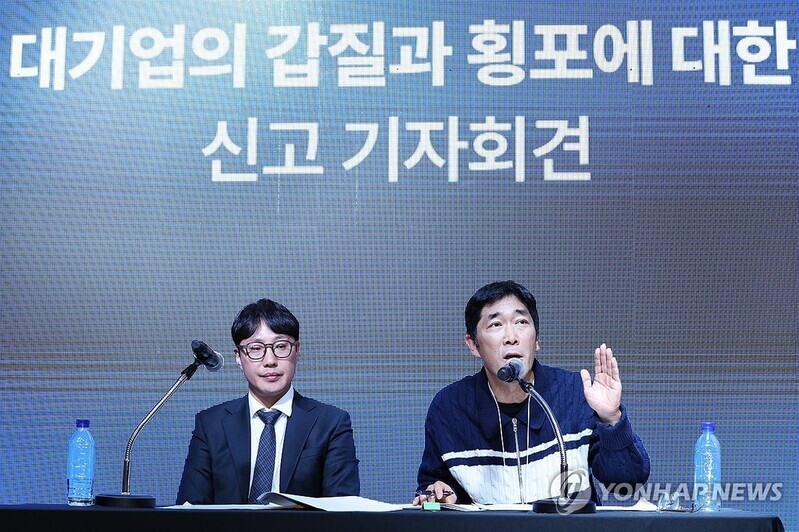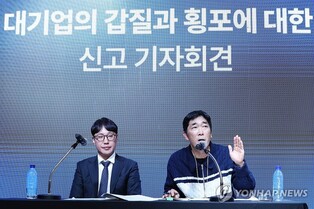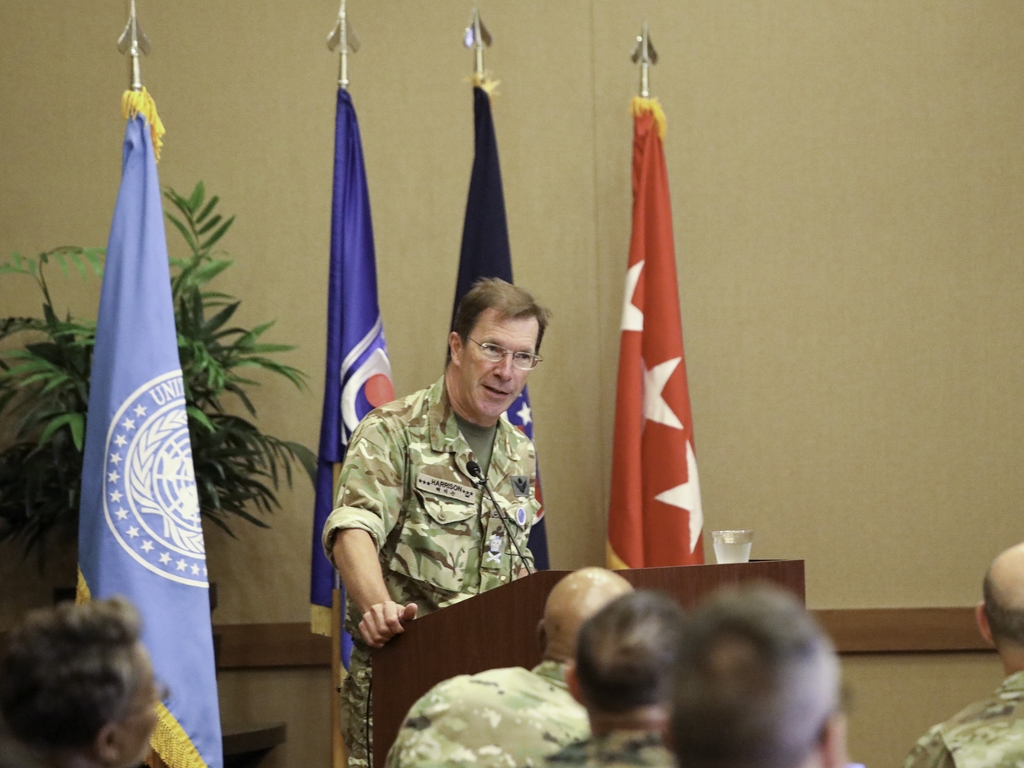 |
| ▲ UNC Deputy Commander British Lt. Gen. Andrew Harrison speaks during the Woman, Peace and Security (WPS) symposium at Camp Humphreys, the main U.S. military installation in Pyeongtaek, 60 kilometers south of Seoul, on June 13, 2023, in this photo released by the UNC public affairs office. (PHOTO NOT FOR SALE) (Yonhap) |
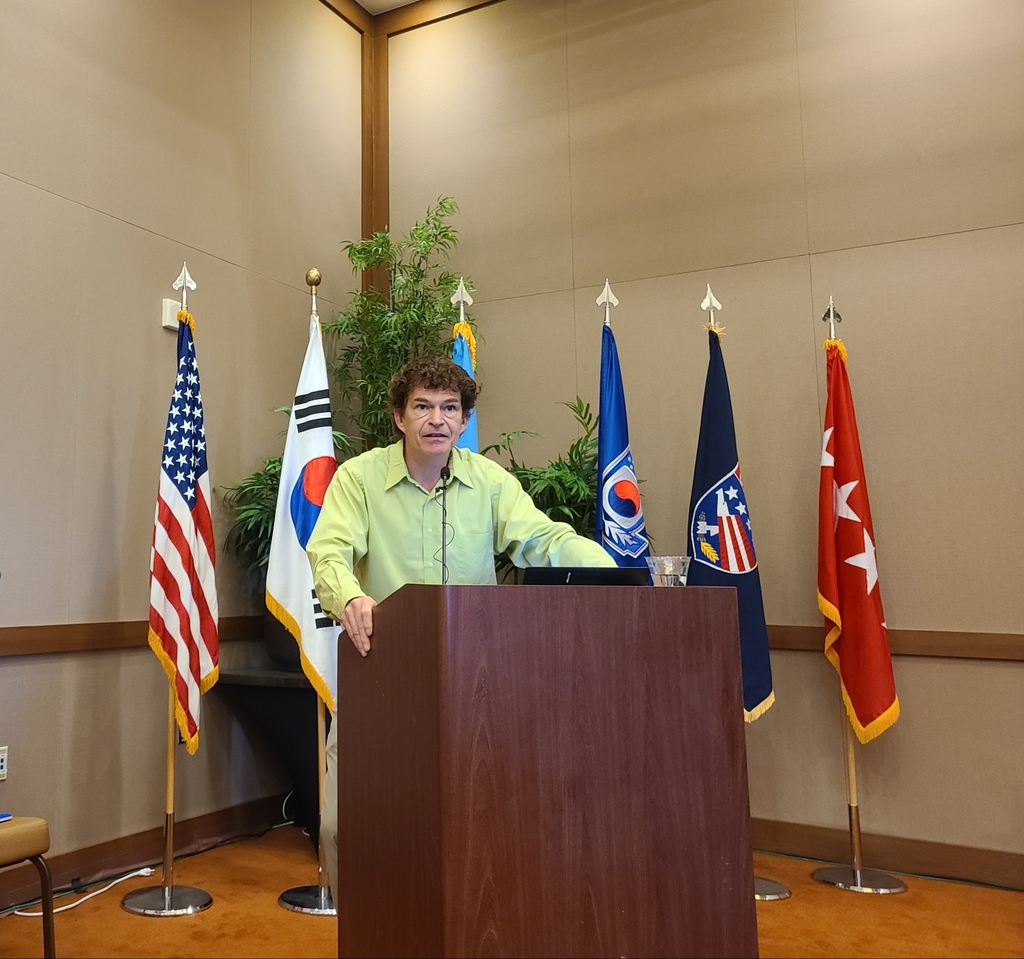 |
| ▲ William A. Wieninger, a professor at the Hawaii-based Daniel K. Inouye Asia-Pacific Center for Security Studies (DKI APCSS), speaks during the Woman, Peace and Security (WPS) symposium at Camp Humphreys, the main U.S. military installation in Pyeongtaek, 60 kilometers south of Seoul, on June 13, 2023. (Yonhap) |
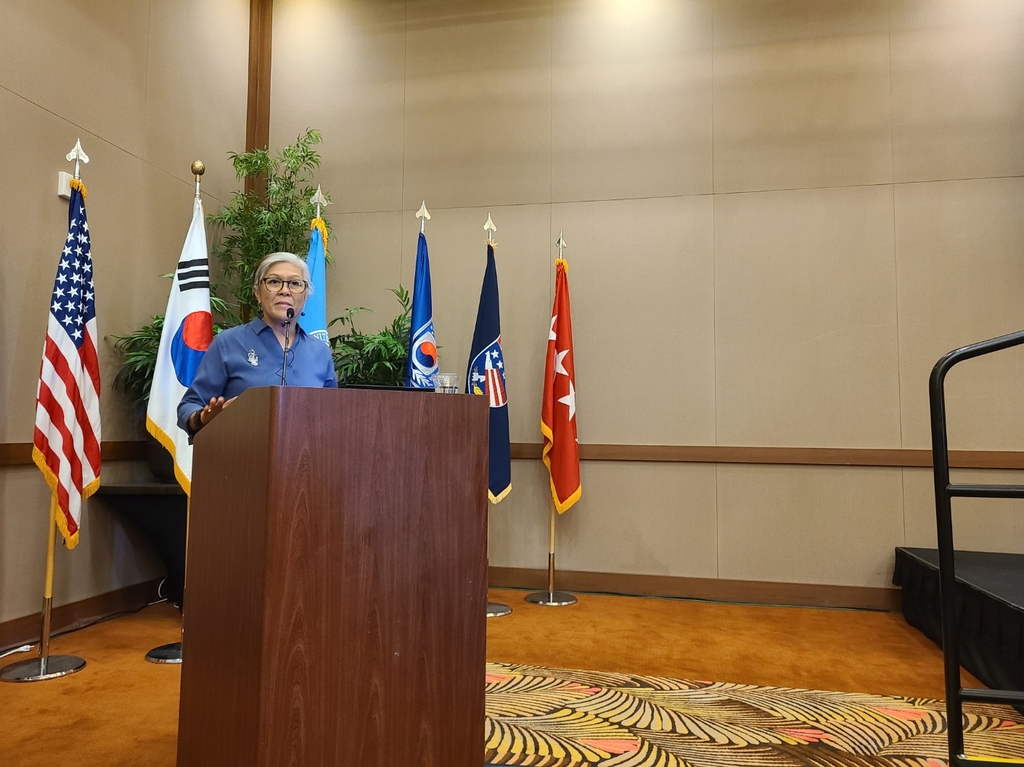 |
| ▲ Miemie Winn Byrd, a professor at the Hawaii-based Daniel K. Inouye Asia-Pacific Center for Security Studies (DKI APCSS), speaks during the Woman, Peace and Security (WPS) symposium at Camp Humphreys, the main U.S. military installation in Pyeongtaek, 65 kilometers south of Seoul, on June 13, 2023. (Yonhap) |
woman peace role-forum
Three U.S.-led military commands in S. Korea hold 1st forum on women's roles for peace
By Song Sang-ho
PYEONGTAEK, South Korea, June 13 (Yonhap) -- Three U.S.-led military commands in South Korea held the first-ever joint forum on women's roles for security on the Korean Peninsula and beyond, highlighting their contributions of diversity, creativity and resilience to peace operations.
The South Korea-U.S. Combined Forces Command, the U.N. Command (UNC) and the U.S. Forces Korea hosted the inaugural Woman, Peace and Security (WPS) symposium at Camp Humphreys, the main U.S. military base in Pyeongtaek, 60 kilometers south of Seoul.
The three-day event kicked off under the three commands' WPS program to promote meaningful contributions of women in defense and security domains. The program is in line with U.N. Security Council Resolution 1325, which was adopted in 2000 to enhance the global commitment to ensuring women are more systematically integrated into peace operations.
In his opening remarks, UNC Deputy Commander British Lt. Gen. Andrew Harrison emphasized the value of the council's resolution, which he said has made the role of women "central."
"If you want to know the value of it, compare those factors that exist north of the border here and compare to what's going on in the South," Harrison said.
"Incorporating diverse perspectives into our plans and our organizations makes us better equipped to confront our competitors. It makes us more likely to be able to defeat our adversaries, and of course, in the end, it'll save lives," he added.
Harrison shared the history of his female family members having served in the defense sector, describing them as "great role models" in his "personal WPS journey." His mother was a former defense official, while his wife was his fellow soldier. His daughter was commissioned as an Army officer last year.
"Resolution 1325 impacts all across our society representation in the armed forces, in politics and commercial boardrooms, etc, but we're not there yet," he said, noting "evidence" showing that "societies that empower women become more prosperous and more secure."
At the symposium, participants explored the benefits of female engagement for operational effectiveness, peace negotiations, and other efforts to foster regional and global security.
William A. Wieninger, professor at the Hawaii-based Daniel K. Inouye Asia-Pacific Center for Security Studies (DKI APCSS), gave a mathematical image underlining the importance of leveraging all untapped human resources.
"If 25.8 percent of your population has above average intelligence, and you only recruit males in the U.S., you have 43 million candidates. If you recruit both genders, you have 86 million candidates," he said. "For the Republic of Korea, your recruitment pool doubles from 6.5 million to almost 13 million."
The scholar also drew a comparison between the now-defunct multinational talks on North Korea's denuclearization -- led by male representatives -- and the nuclear deal aimed at curbing Iran's nuclear program, as he indicated that increasing the role of women in peace arrangements makes them "more durable and resilient."
"The Iran nuclear talks, on the other hand, had senior females in both the U.S. and the European Union," he said. "Although the subsequent U.S. administration pulled out, the agreement still stands between Iran and the EU."
Miemie Winn Byrd, another professor at the DKI APCSS, delved into the role of Myanmarese women in their resistance against military leaders, whom she depicted as being "at the tip of the spear to maintain democracy" in a country at the doorstep of China.
"Women bring different type of tactics to the fight because the military has firepower, but women understand people power and smart power," she said. "I hope that this shows you ... by utilizing that blind spot -- half of the population -- how you can go about making a difference against our opponents."
In a meeting with reporters, Lt. Col. Charlynne McGinnis of the symposium's organizing team hammered home its main theme: women bring diversity to the military's planning and decision-making activities.
"What we're trying to get out of it is to a look at our operations' activities and investments from a gender perspective to have meaningful participation of females in the decision rooms, in the planning rooms in order to maintain peace and security here on the peninsula."
(END)
(C) Yonhap News Agency. All Rights Reserved

























